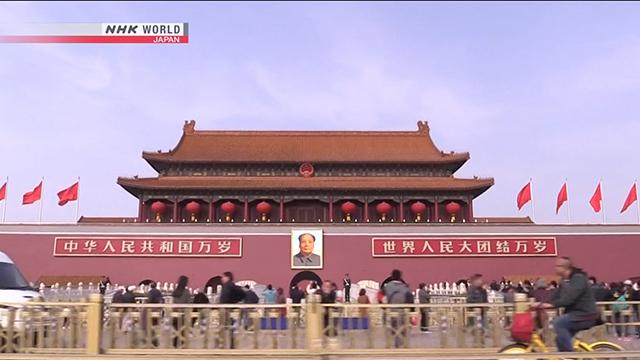Tougher control on the internet
The authorities have stepped up online censorship. Even in the past, a simple Internet search involving terms such as "more democracy" or expressions hinting at any criticism or ridicule of the Communist Party would draw a blank. Access was blocked to any sites containing such words or expressions.
Experts say, though, that until now, the authorities hadn't been too concerned about what people wrote on blogs or the comments they made on websites.
Fu King-wa, an associate professor at the University of Hong Kong, says the Internet was relatively free until about 2013, and people could view all kinds of information.
But in June this year, Beijing implemented a new law tightening control of the Internet. People using social media have to register their names in full. This enables the authorities to trace and identify anybody who might be making comments they don't like.
Dong Xuan runs a Beijing-based website featuring articles and videos. Her articles are frequently deleted these days.
Dong says any content that even slightly deviates from the Communist Party line is deleted. "Last week, for example, an article drawing attention to some bad aspects of Chinese society was deleted from the website."
Dong was astonished, as the article had no overt criticism of the Communist Party. After the deletion of several articles, Dong found that her provider froze her website for 3 months. Dong says everyone is being careful not to get into any trouble.
Associate Professor Fu points out that the leadership under Xi Jinping watches the Internet. "The government is certainly worried about online debate. Xi wants tighter controls to prevent it from being used as a means of attacking him. He is apparently worried about any undermining of his regime," he says.
Lawyers restrained
Wang Qiaoling says her husband was abruptly detained by the authorities and held for about 2 years. Her husband is a lawyer. He had been an advocate of people's rights, helping those who were being evicted from their homes by the local authorities.
Wang says she had trouble recognizing her husband after the detention as he had lost 10 kilograms. "My husband was forced to stay in the same position for about 15 hours each day for 2 months. If he moved in any way, he was hit," Wang says.
She also says her husband was saying that he thought he would die when he was forced to take medication.
The Chinese authorities have frequently detained human rights activists and those arguing for more democracy, including the late Liu Xiaobo, who was awarded the Nobel peace prize.
This has become more pronounced since Xi Jinping took power. The authorities have taken a particularly keen interest in lawyers. More than 300 lawyers across China have been detained or investigated since July 2015.
State-run CCTV has aired images of lawyers confessing their crimes. One of the lawyers says he admits to his crimes, and will not lodge any appeal against them.
Li Wenzu's husband was also abruptly detained 2 years ago. He had been an advocate of people's rights. Li still doesn't know where her husband is.
Li says, "My husband is being held on allegations of subversion. But how could that be? He has no troops at his command. He was merely defending a client. The allegations of subversion are absurd."
About 6 months after his disappearance, Li received a notice saying that her husband had been arrested on suspicion of subversion. But it did not give any further details.
Li and her 4-year-old son are waiting for his return. Li's son says he wants to see his father. He wants to know how he is, and wonders whether he has been beaten.
Wang Qiaoling and Li Wenzu visited the Supreme People's Procuratorate in Beijing, the nation's highest authority for prosecutions and investigations. The 2 women wanted to lobby for the release of Li's husband, and to obtain more details about the detention of Wang's investigation. But neither of them could get clear answers.
Li is angry that the authorities are denying her husband access to a lawyer, despite their talk of China following the rule of law. She says any such country would be protecting their rights, and that access to a lawyer is a basic right.
